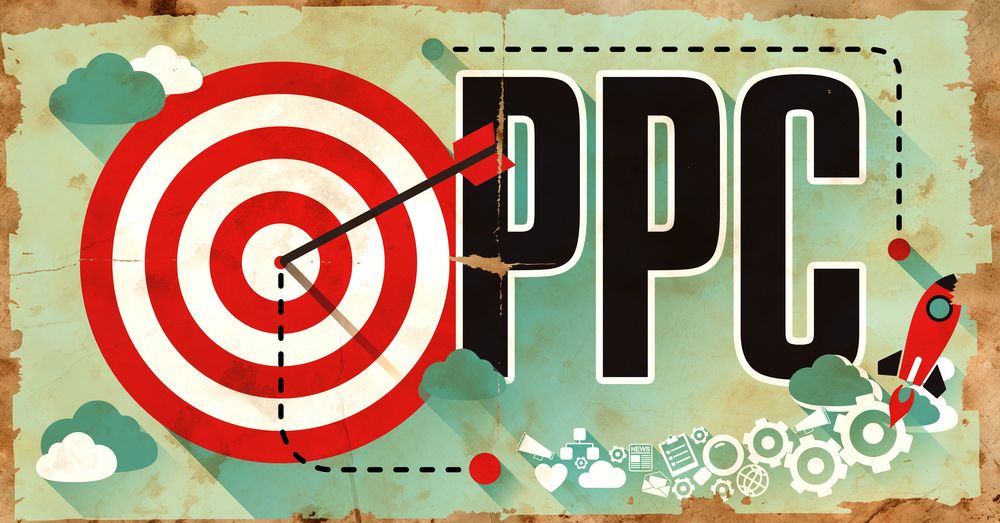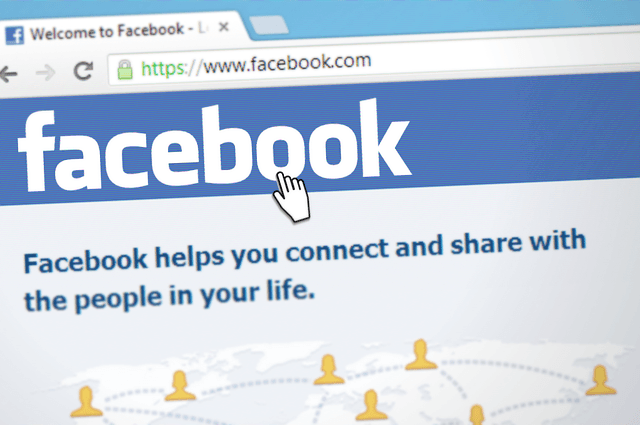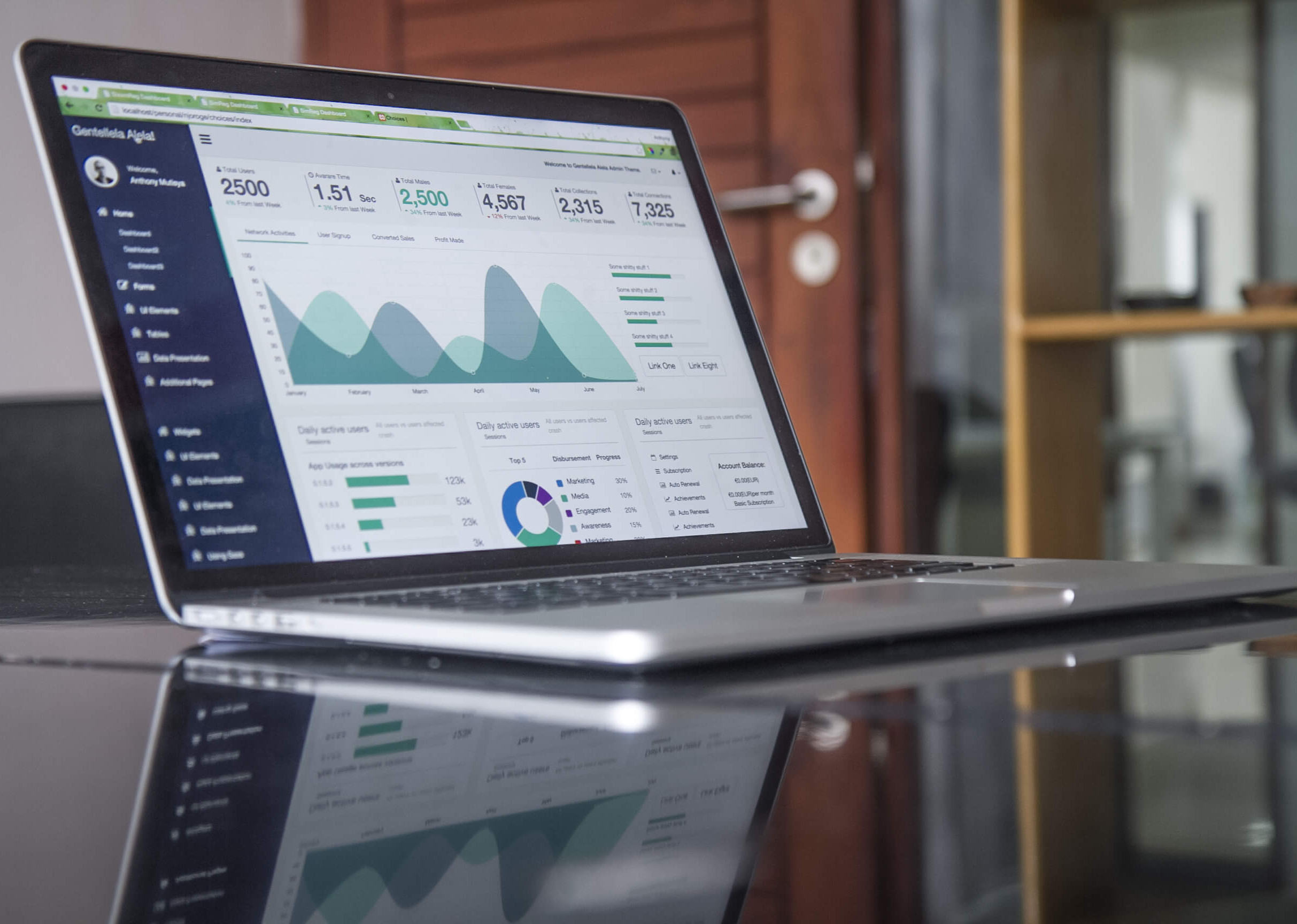
I can’t tell you how many times I’ve had a small business owner ask me if they should do Search Engine Optimization or Pay-Per-Click advertising. It’s a question small businesses wrestle with and a frequent topic during meetings with prospective clients. To further complicate the discussion, paid advertising on Facebook has entered the debate.
In this article I have attempted to thoroughly answer this question while incorporating pros and cons to each strategy, timelines, expectations, and budget concerns.
The Succinct and Direct Answer
If I had to answer the question shortly and candidly, I would tell you to do all three. Now, I know what you’re thinking: Doing all three is cost prohibitive, takes up too much time and resources, and creates challenges finding trustworthy talent for three different marketing disciplines.
This is exactly why this question relies on important details to arrive at the right decision for your company’s marketing budget. So without further ado, let’s dive in!
Brief Overview of SEO
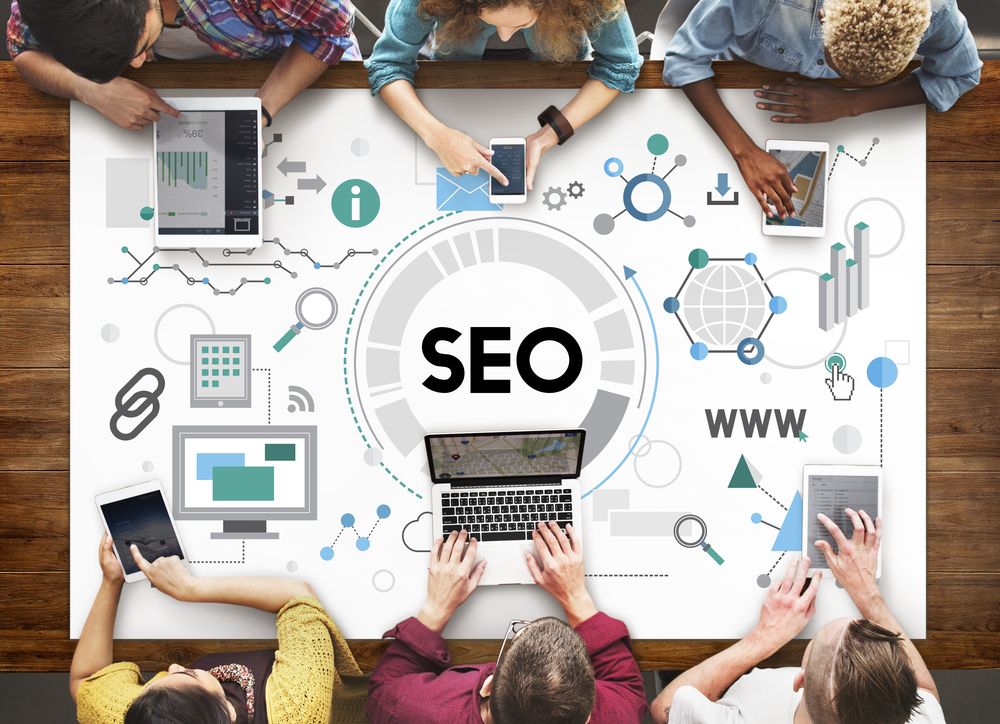
Search Engine Optimization (SEO) is the best practice associated with acquiring traffic from the “free,” “natural,” or “organic” listings from search engines like Google, Yahoo, and Bing.
Google has a proprietary algorithm they use to decide which websites to show in order of relevance to a search. It’s well known that Google has about two hundred ranking signals they incorporate when determining the rank of a site.
In essence, SEO is executing known best practices, keeping up with new practices, staying informed of speculative ranking signals, avoiding penalties, and committing to providing a highly valuable user experience. When you put potential site visitors first, you will automatically touch on core SEO strategies.
Industry Professionals Have Divided SEO into Categories
Local SEO
This type of SEO focuses on ranking your business locally. This is most applicable to businesses with a physical location that serve customers within a certain region. For example, a dentist in Del Mar will likely have 80% of its customer base living within 5 to 10 miles of the practice. Implementing sound Local SEO practices would be critical for this dentist, while an e-commerce store shipping women’s dresses nationwide would likely give less consideration to Local SEO because their proximity to customers is irrelevant.
Technical SEO
This type of SEO is foundational to a strong SEO plan. Technical SEO is all of the best practices associated with making it easy for search engine spiders or web crawlers to crawl, index, and understand your website. Technical SEO requires using Google’s Search Engine Console, submitting sitemaps, unblocking JavaScript and CSS, managing site speed, fixing crawl errors, implementing schema, setting canonical tags, and many more technical components. For a comprehensive guide to Technical SEO, check out this write up.
On Page SEO
This type of SEO is concerned with the content on your website and how well it is optimized for keywords you are targeting. Think of On Page SEO as the content and copy factors that provide visitors a good and relevant experience. Experienced On Page SEO professionals are constantly making small on-page adjustments like adding subcategories to service menus to better silo content, adding copy to pages that are determined as “thin,” or optimizing blog postings to outrank competitors.
Off Page SEO
This type of SEO includes best practices that take place externally to your website. For example, if you are writing a Title tag, that would be an activity internal to your website and would not fall under the category of Off Page SEO. But, if you are writing a guest post, you would be practicing Off Page SEO.
The Off Page SEO activity that is the largest weighted ranking signal is no doubt backlinking. In my opinion, you should have a strong Technical SEO and On Page SEO foundation prior to engaging in any Off Page SEO efforts. For example, if you are going to roll out a backlinking strategy, you are going to need a content bank. So, you will need to start producing high quality videos, infographics, or informative long-form blog postings. Otherwise, publishers and other sites will have no interest in linking to your content.
Barnacle SEO
This is a specific strategy to rank for extremely competitive keywords that are nearly unreachable by leveraging other companies’ strong rankings. Sometimes big brands that are content generating machines make certain keywords unreachable for the rest of us. So, why not make like a barnacle and attach to the ship! An example of Barnacle SEO would be identifying a question or keyword phrase where Quora ranks. From there, you would write a more informative answer to the question in an effort to get your answer up-voted to the number one answer on Quora. Then people will click the Quora listing, notice your response, and hopefully click one of the links back to your site. Boom, new traffic source!
Brief Overview of Pay-Per-Click
Pay-Per-Click (PPC) is a form of search engine marketing. The pricing model literally charges advertisers every time their ad is clicked. The cost-per-click has a very large range and depends on a number of variables.
The Google PPC platform is called AdWords. AdWords is an online marketing platform enabling businesses to advertise on the Google search engine results page and its advertising network. The platform is incredibly popular with over one million advertisers. In fact, about 90% of Google’s revenue is from ad revenue.
Google provides a great deal of resources and support for marketing companies and advertisers. They have training tutorials, an AdWords certification test, and live phone support.
The Yahoo/Bing network provides an alternative to Google and allows advertisers to run Pay-Per-Click ads on Yahoo and Bing. While these two search engines receive less traffic than Google, the clicks are more cost effective and the campaigns are often less competitive since there are fewer advertisers.
Brief Overview of Facebook
More than 1.8 billion people use Facebook, one of every five minutes that people in the US spend on mobile devices is on Facebook or Instagram, and 500 million people use Instagram each month. It’s no wonder advertisers are spending more money each month and that Facebook’s 2016 Q4 revenue was nearly $9 billion.
Facebook and its family of apps provide an unparalleled advertising opportunity. Never before have brands had access to such important data about consumers behaviors, demographics, and the interest of their target market.
Facebook advertising enables marketing campaigns with a variety of objectives on a platform that is conducive to testing, tweaking, and scaling.
Pros of SEO
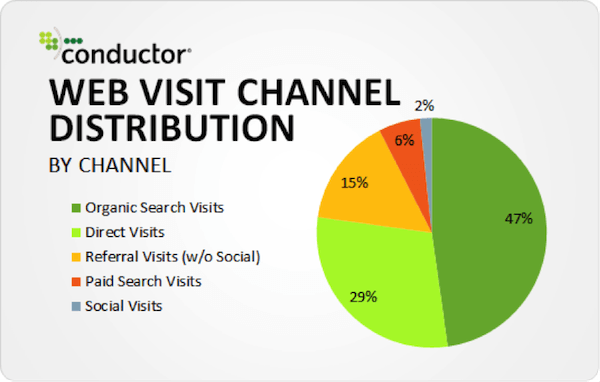
There are dozens of stats and case studies on the benefits of a website showing up on the first page of the internet. To be frank, I think it’s quite obvious that if your business’s site shows on the first page of Google, Yahoo, and Bing, you will likely reap huge rewards.
According to a 2014 study by Conductor, organic searches account for up to 64% of web traffic. That means organic traffic trumps paid advertising traffic, direct traffic, and social media traffic. 70-80% of users ignore paid ads and click on organic ads instead, and SEO leads have a close rate of nearly 15%, while outbound leads (direct mail or print) have a close rate of 1.7%. 93% percent of online experiences began with a search engine.
People use search engines when online, they favor organic listings over Pay-Per-Click ads, and SEO leads convert at a very high rate.
A well thought out SEO plan will conclude in a great user experience for your visitors. For example, part of your Technical SEO task list will be to enhance your site speed. Users love a fast site and quickly become impatient while trying to access slow sites. If your site is too slow, expect to have short dwell times and high bounce rates.
Another section of your plan will include optimizing your site for mobile devices. While mobile optimization is a ranking signal, the effort will also cater to a large portion of your current and future site visitors.
Sites that silo content and have specific pages for products and services are not only properly structured for SEO but also create good organization for the visitor, making the site easy to navigate and locate the information they are looking for.
Since content is a huge ranking signal, your SEO plan will likely have a section for blogs, videos, and infographics. Content and multimedia can be extremely informative to site visitors and often present information in an engaging format. A good content plan increases the time on site metric and discourages users from bouncing off quickly.
Since a good SEO plan promotes organization, the initiative often creates landing pages that are ready to convert traffic from paid advertising campaigns into leads or customers. A good SEO plan should have a section for organizing pages by product or keyword and ensuring each page has a strong call to action. If you think about it, these are common best practices when building landing pages specifically for Pay-Per-Click or Facebook advertising campaigns.
It used to be that the only goal of SEO was to rank your site on the first page of search engines. While that is still the core objective, there are now many ancillary benefits to a strong SEO plan. A sound SEO plan will create a great site structure, ensure your site is fast and mobile-friendly, set you up to convert paid traffic campaigns, and most importantly, create a great experience for site visitors.
Cons of SEO
The biggest con to SEO is that it takes time to rank a site on the first page of a search engine. The time it take depends on a number of factors like how competitive and saturated your market is. If you operate in a highly crowded space and compete against big brands, then it could take a very long time to rank and it may require a costly SEO plan.
On the other hand, if you operate a niche business with very few competitors and under-represented competitors, you may be able to rank your site very quickly.
Most of the companies we work with at Rocket Pilots are local small businesses like law firms, assisted living facilities, dentists, event furniture rental companies, mortgage lenders, tour companies, and other service businesses. If you fall into one of these categories, it may be easier than you think to rank your site.
Sure it will take time, money, patience and consistency, but it can be done in a reasonable timeframe.
Another con to SEO is the lack of control you have over search engine algorithms. The formula for ranking a site is not exactly a transparent blueprint provided by Google. The SEO community has a very good understanding of ranking signals and best practices, but no SEO or small business owner is privy to the exact formula or knows precisely when the next algorithm update will be rolled out.
Pros of PPC
Speed
If you know what you’re doing, you can have a PPC campaign up and running in no time. And if you build your campaign properly, you can quickly generate new leads and customers. The short amount of time it takes from the time you decide to run a PPC campaign until you are generating leads is one of the biggest advantages to PPC advertising.
Page Placement
Four of the eight PPC ads on desktops are located above the organic search results. Whether a user likes it or not, they will inevitably see the ads. You will hear many people say that they never click the PPC ads. I’ve had countless small business owners ask, “Does anyone even click those ads?” When you hear this, just remember that Google’s principal source of revenue is from advertising. The majority of Google’s $75 billion in revenue in 2015 came from AdWords. So, yes, people definitely click the PPC ads!
Targeting
With PPC you can control what keywords will trigger your ad. This is huge because you have the ability to target someone who is specifically looking for your product or service. This intent-based marketing provides the opportunity to capture a user’s attention when they are the most engaged. If you wrote strong ad copy and utilized ad extensions, your ad is likely to stand out from competitor ads.
Budget
It’s very simple to setup and control a PPC budget. You have control over your bids, daily budget, and overall campaign budget. You can increase your budget, decrease your budget, launch new campaigns, or pause campaigns in real-time. The flexibility over budget and cost with PPC is a huge benefit.
Tracking Return on Investment
With AdWords, tracking your campaign return on investment (ROI) is simple and clear cut. If you have an e-commerce store, you can setup conversion tracking and see your sales right in the AdWords dashboard. With some basic math incorporating production cost, sales revenue, and ad spend, you can quickly arrive at your ROI. If you don’t have an e-commerce site, you can still easily track your ROI. Simply keep track of leads that come in through AdWords and track them through the sales cycle. You’ll want to know how many closed and the revenue associated with each close to determine if your PPC initiative is running at a loss or is profitable.
Cons of PPC
Pay-Per-Click Requires a Certain Skill Set
Running successful campaigns takes a knowledge of best practices, an understanding of an advertising platform, an analytical mind, a commitment to learning, and the dedication to stay on top of constant feature changes and additions. A lot of small business owners and employees are incredibly busy and just don’t have the time to learn a new skill set. While PPC is tempting, it requires a concentrated effort, which in some cases takes up too much time.
It Can Be Expensive

Depending on your industry, each individual click can be expensive and require a large budget. Insurance, legal, and mortgage related terms can near $50 per click. I have actually seen law firms throttle bids and pay over $80 per click. If you start thinking about how many clicks it takes to obtain a new client, you can imagine how some industries have very high customer acquisition costs when counting on Pay-Per-Click.
It’s worth mentioning that the uninitiated typically pay more than skilled advertisers for each click. This is because the pros know how to obtain high quality scores, build comprehensive negative keyword lists, and bid correctly. A top professional will keep the user experience in mind by ensuring that landing pages are relevant, ad copy is compelling, and keywords are in sync with ads and landing page copy. As a result, they enjoy cheaper cost-per-clicks than their amateur competitors.
Outsourcing Can Be Challenging
In an effort to free up time and allow experts to manage campaigns, many small businesses will outsource PPC. It’s a great idea and often the correct choice, but picking a company can be challenging. Many providers oversell their talents, have dishonest pricing models, bill for the monthly budget upfront, force annual commitments, use their own AdWords account, or provide poor customer service.
If a firm oversold their talents, they will likely not provide great results. When you incorporate their fee, your cost per lead might go through the roof.
Many large agencies will not properly disclose their fee. Small businesses come up with a budget and make a payment to the agency at the beginning of the month. What they don’t realize is that sometimes up to 50% is going to the company as a service fee and the rest to the publishers. What’s worse is that the client is often thinking their budget is going to Google, but most of the time it is being distributed to several smaller publishers and search engines. So, the percentage going to Google is actually a minority of the overall budget.
I understand the value of an annual marketing budget and allocating the budget to different initiatives. But an annual contract can be a huge disadvantage when things go south with your marketing partner. If you are unhappy with their work, you probably don’t want to stick around for a full year.
Pros of Facebook
With over 1.4 billion users and about 900 million daily visitors, Facebook provides a tremendous opportunity for smart advertisers. Let’s take a look at some of the pros to advertising with Facebook.
Laser Targeting Options
It is remarkable and borderline scary the information available to marketers inside the Facebook platform. You can specify the age, gender, marital status, household income, a variety of interests, demographic, and behavioral information. Facebook gathers data about users from information in their profiles, online behavior, and from third-party data aggregators.
Let’s say you want to target recently engaged women between the ages of 25 and 34 who live in San Diego city limits and have shown an interest in travel. That would be no problem at all. Or how about men aged 34 to 45 living in San Marcos, who make above $50k and have shown an interest in marathons. Easy.
If you understand your ideal customer, Facebook provides the opportunity to serve them ads that are likely to be well received.
Optimization
Once your ads have been running for a while, you will start collecting valuable data about your campaign, ad sets, and ads. It’s this data that enables marketers to make refinements to stop budget waste and only spend on areas that are producing results. We marketers call this process “optimizing.”
Let’s assume that across all of your ad sets you are being charged on a CPM model. CPM stands for, cost per 1000 impressions. Let’s say you are receiving impressions for all ages, but you are only receiving clicks from ages 45 to 54. Those other age segments are costing you money but not providing any traffic, let alone conversions. Can you guess your first opportunity for optimization? If you said to disable all age segments except 45 to 54, then you are catching on quickly!
But that is just one basic example. You can also optimize around gender, mobile, desktop, Instagram, Facebook newsfeed, specific ads, high performing audiences, and much more.
The ability to optimize around these many parameters is a huge benefit. For skilled marketers who have the analytical mindset and the patience to make ongoing refinements, Facebook enables razor-sharp targeting opportunities.
Tracking Clicks to Conversions
Facebook has a Pixel that enables site owners and marketers to accurately track conversions right in the Facebook advertising dashboard. This adds a whole new level to optimization. Why optimize around clicks when you can optimize around leads and conversions? The pixel is a lightweight piece of code that is easy to install and enables simplistic ROI tracking.
You Can Start Small
What I love about Facebook is that new advertisers can just limp in for as little as $5 a day. Start small, collect data, make refinements, and evaluate whether Facebook advertising is good for your business. There are no upfront commitments, obligations, or large risk to take. You can control your daily budget and stop or pause a campaign in real time.
Resources
Facebook is a hot advertising platform, and there is an abundance of quality publishers, internet marketing experts, and top industry blogs that regularly talk about Facebook advertising. Internet marketing celebrity Neil Patel has a step-by-step guide to Facebook advertising, industry expert Jon Loomer writes extensively on Facebook marketing, and Facebook has a platform called Facebook Blueprint that trains business owners and marketers on the advertising platform.
Cons of Facebook
Constant Changes and Updates
Facebook is constantly making changes to their advertising platform. Most of them are for the better, but consistent updates means you need to frequently reacquaint yourself with the interface. If you are not technology savvy or comfortable using SaaS, then you could easily become frustrated. I am in the backend every day, and I am shocked how often they are moving buttons around, changing the interface, and making deletions and additions to targeting options.
It Favors the Analytical
If looking at data charts drives you nuts, you probably will not enjoy analyzing your stats and optimizing your campaign. If you’re a data geek, on the other hand, you probably can’t wait to nerd out on your stats. Yes, you can export to excel. Pivot table time!
Facebook Marketing is Time Consuming
I know a lot of people build ad hoc campaigns, use free images from Facebook, and have the “set it and forget it” mentality. This is a great way to build a campaign quickly. It’s also a great way to waste a pile of money almost inevitably! Building campaigns properly will require a commitment to conducting research and truly understanding your target customer. Even for top Facebook marketers, this is an ongoing process that requires testing, making refinements, and a large time commitment.
What’s The Bottom Line?
When small business owners are deciding between SEO, PPC, and Facebook, they have to consider their budget, impact of marketing, and how long it will take to see results.
Everyone’s situation from a financial and health of the company perspective is different. If you need leads yesterday and are in a market that has search demand and the clicks are not notoriously expensive, then start with Pay-Per-Click. For a business that need leads immediately, PPC is a great way to capture people that are already searching for your products or services. Also, if you are on a limited budget, PPC provides the opportunity to start small and then ramp up. If you are managing a tight cash flow situation, you can always decrease your budget or pause your campaign. Plan to create a profitable campaign and use some of the proceeds to fund an SEO campaign.
If things are a little more stable and you are in a position to plan long term, then you should definitely do SEO. There are just too many direct and indirect benefits to prolong rolling out a strong SEO plan. If you are nervous about who to hire, check out this guide that will walk you through the process of hiring wisely and ensure you avoid working with amateurs or snake-oil salesmen. Don’t sit on the sidelines because you think it will take too long or cost too much to rank your site. Get in the game and fight. The rewards from organic traffic can turn your business into a huge success story. When you rank organically, you set up the opportunity for the ultimate trio: organic leads, PPC leads, and Facebook leads!
Although Facebook and Instagram are currently the hottest advertisement platforms, I still don’t look at them as the first choice for small business owners. Don’t get me wrong, they are great and we run successful campaigns on a daily basis. But, they still require you, the business owner, to look for your clients. Whereas, SEO and PPC capture customers looking for you. That’s a big difference. When someone contacts Rocket Pilots because they Googled “San Diego Facebook Advertising company,” clicked through to our site, and then called us—trust me, that person means business and it’s often a highly qualified lead.
I tend to look at Facebook marketing as a complement to SEO and PPC. If you have a mature digital marketing strategy and are looking to widen your reach, then Facebook is a great place to start. My exception to this rule would be if you are running PPC and can’t afford SEO. I understand that position, and Facebook will enable you to once again start small and cautiously watch your budget. That would be a good example of choosing Facebook over SEO and would expand your reach beyond search engines.
As you can see, the short answer is to choose all three. But, since we live in the real world, I know that is not always a practical solution for small business owners. The decision is circumstantial, and I hope this article has put this topic in perspective and provided you with the variables you need to make an informed decision.
If you need further guidance with this decision, do not hesitate to leave a comment below, email or call me. And if you need help executing marketing plans, check out our SEO Service, PPC Service, and Facebook Marketing Service and request your no-commitment consultation today. We look forward to hearing from you!

